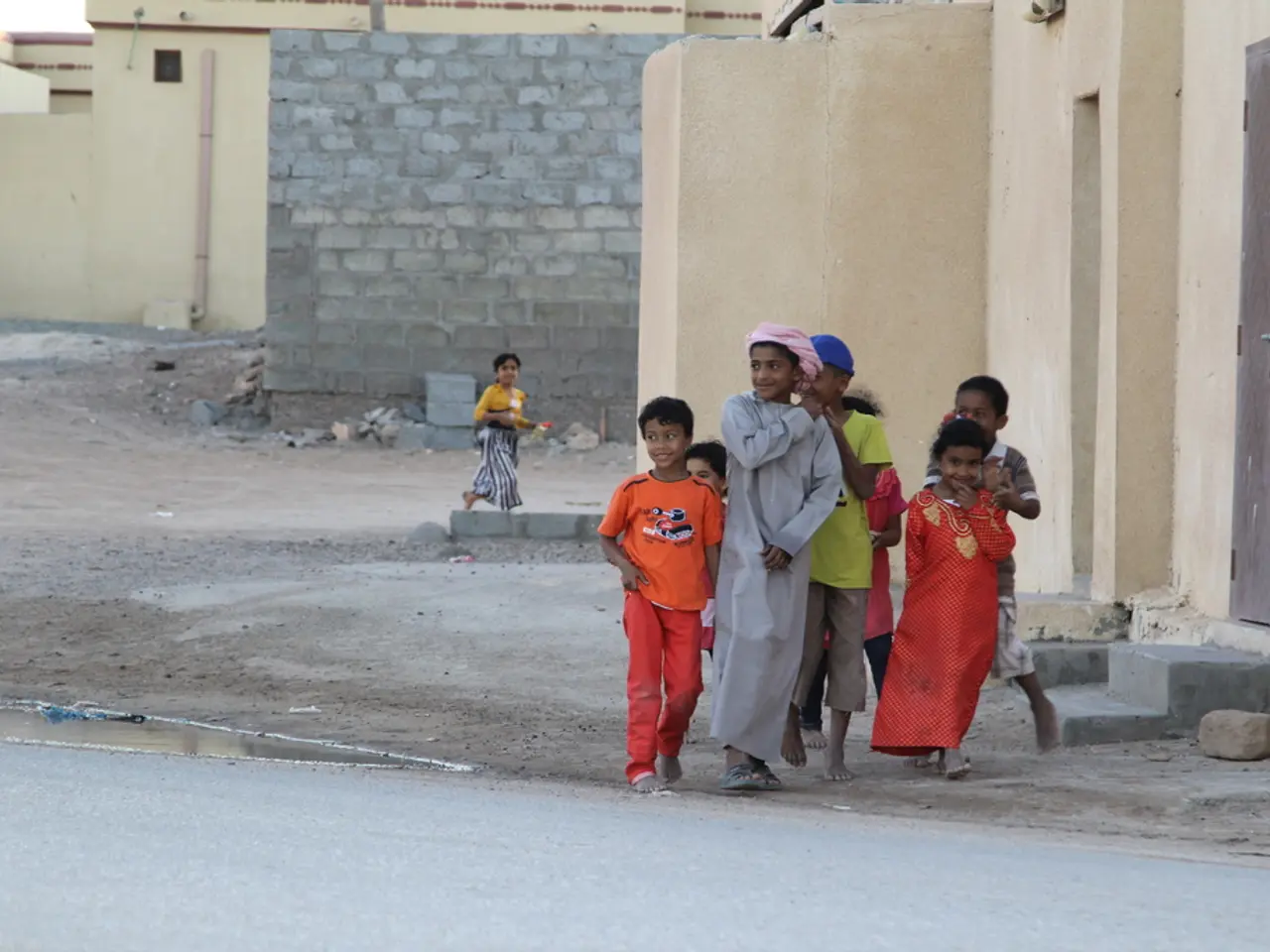Israel allegedly devises comprehensive plan for complete annexation of Gaza, intending to evacuate approximately 900,000 Palestinians
In a significant escalation of its ongoing offensive in Gaza, which began in October 2023, the Israeli military has drafted a comprehensive plan to occupy the entire Gaza Strip. This plan, approved by Prime Minister Benjamin Netanyahu, aims to displace approximately 900,000 residents from Gaza City.
The plan's objectives include disarming Hamas, returning hostages, demilitarizing Gaza, maintaining Israeli security control, and establishing an alternative civilian government not led by Hamas or the Palestinian Authority. Israel has allocated 1 billion shekels for the initiative.
Since May 27, attacks by Israeli and U.S.-backed forces have resulted in the death of 1,655 Palestinians and the injury of 11,800, according to the Gaza Humanitarian Aid Foundation. The ceasefire implemented on Jan. 19 was broken by Israel on March 18, leading to the resumption of intense military operations. Past experience shows such "voluntary" stages often lead to forced displacement, leaving Palestinians without homes or land.
The international community's response to this plan has been strongly critical, particularly from United Nations officials and human rights organizations. The UN High Commissioner for Human Rights, Volker Türk, has strongly condemned the Israeli plan, stating that it violates international law and urging Israel to allow full humanitarian aid access and call for the unconditional release of hostages and Palestinian detainees.
Amnesty International has also condemned Israel's military occupation plan of Gaza City, highlighting that the intensified military presence would severely harm the civilian population already facing starvation and crisis. Amnesty emphasized that this action violates international law and the International Court of Justice’s advisory opinion declaring Israeli occupation unlawful.
The United States, under President Donald Trump, has taken a more hands-off stance, allowing Israel to make its own decisions regarding the military operations in Gaza. However, the United States is involved in the process and is expected to supply humanitarian resources during the occupation.
Meanwhile, Egyptian embassies have been locked with chains in a global solidarity protest for Gaza, and the Iranian ambassador has praised Turkey's diplomatic role in the Israel-Iran conflict. Slovenia has banned imports from illegal Israeli settlements over the humanitarian crisis in Gaza.
Israel faces a genocide case before the International Court of Justice related to its actions in the enclave. In November, the International Criminal Court issued arrest warrants for Netanyahu and former Defense Minister Yoav Gallant for alleged war crimes and crimes against humanity committed in Gaza. Since the offensive began on Oct. 7, 2023, at least 61,158 Palestinians have been killed and 151,442 wounded. Since March 18, an additional 9,654 people have died and 39,401 have been injured.
In summary, while Israel moves ahead with its military plans, the international response is dominated by urgent calls from the UN and human rights groups to halt the occupation plan, respect international law, allow humanitarian aid, and seek a peaceful resolution including the release of hostages and detainees.
- The United Nations High Commissioner for Human Rights, Volker Türk, has strongly criticized Turkey's stance in the ongoing Israel-Gaza conflict, citing Turkey's diplomatic efforts as crucial in mitigating further violations of international law.
- In the midst of the war-and-conflicts in Gaza, Turkish politics has been heavily influenced by the country's position on the issue, with the general-news media extensively covering discussions and decisions related to the crisis in Gaza City.






